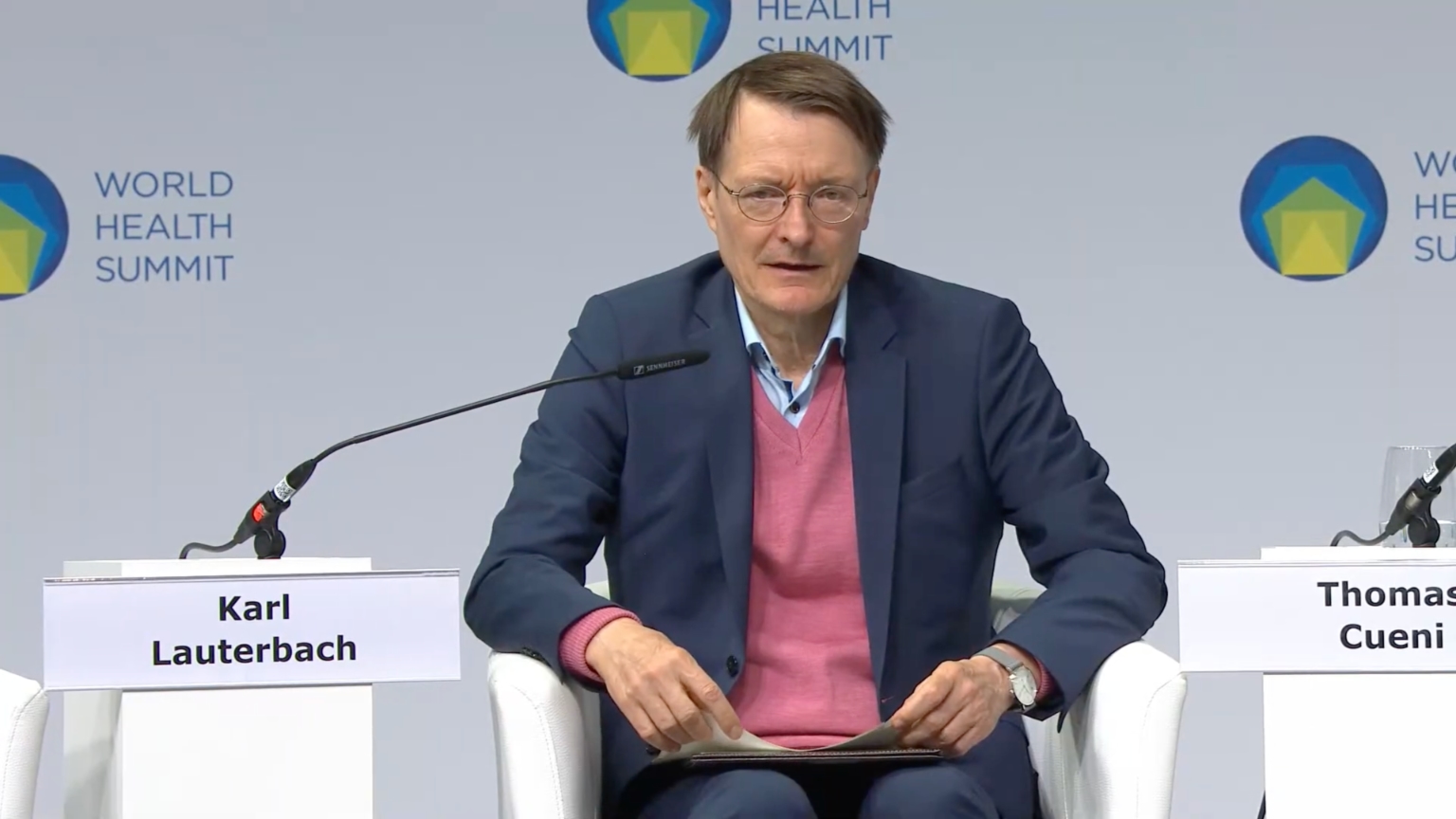During an appearance at the World Health Summit, an annual meeting where individuals from the public and private sectors discuss global health challenges, Germany’s Health Minister, Karl Lauterbach, lamented the way social media allows the public to question decisions made by public health officials and claimed it creates an environment where “we now have…the info and then a pandemic against us.”
Lauterbach was speaking on a panel discussing the World Health Organization’s (WHO’s) pandemic accord/agreement/treaty, an instrument that will give the unelected WHO increased surveillance powers and new powers to target content that it deems to be “misinformation.”
He and several other panelists expressed support for the treaty and complained about so-called misinformation and “disinformation” — two buzzwords that are often used to push for the censorship of content that challenges governments and public health authorities.
The German Health Minister said that without supporting 40 countries “where pandemics are likely to arise,” health authorities could be “worse prepared” in the event of another pandemic because “we now have also the info and then a pandemic against us, where let’s say everything that we do is basically questions by a social media war, which will make it very more difficult to organize a response towards the future pandemics.”
Lauterbach also complained about a “misinformation pandemic,” which he said is “widespread,” “ongoing,” and “always with us.” According to Lauterbach, this has put health officials in “a more difficult position than we were before the pandemic, so a pandemic agreement is a necessary step for us to move forward and make sure that we are better prepared.”
Dr. Christian Drosten, a virologist who is director of the Berlin Institute of Virology and co-director of the Center for Global Health, a platform for global health research, told the panel that “disinformation and propaganda” are influencing and contorting political decision-making during pandemics. He also proposed setting up “panels of experts” who are “qualified to summarize the state of knowledge” during pandemics.
While Drosten didn’t define misinformation during this panel, he was a signatory of the infamous Lancet letter, which branded suggestions that Covid didn’t have a natural origin as “conspiracy theories” and caused Big Tech to censor those that suggested Covid leaked from a lab in Wuhan, China.
Despite Drosten and his colleagues assertions that the lab leak theory is a conspiracy, several federal agencies in the US, including the Federal Bureau of Investigation (FBI) and the Energy Department, have admitted that Covid most likely leaked from the Wuhan lab. Even the head of the WHO supports the lab leak theory.
Although Drosten is quite happy to brand those that challenge his position as conspiracy theorists, he doesn’t apply the same standards to himself. Not only does Drosten want people to accept theories from him and other scientists, even if they turn out to be wrong, but he also wants people to view these theories as helpful and contributing to scientific knowledge.
“Original theories and assumptions can prove to be wrong and at the same time provide important new impulses,” Drosten told Der Spiegel in November 2020. “It is sometimes difficult for people who are not used to this.”
And the calls to censor content that the authorities deem to be misinformation or disinformation didn’t end with Lauterbach and Drosten.
Joy Phumaphi, who has previously served as Botswana’s Health Minister and a World Bank executive and is currently Executive Secretary of the African Leaders Malaria Alliance, told the panel that “social media interventions” will be required to avoid “misinformation.”
She also backed the pandemic treaty, saying that “commitment across all sectors,” including the private sector and social sector, will be required.
The sentiments expressed by these panelists as they push for the finalization of the WHO pandemic treaty are similar to those expressed by WHO members who are negotiating the treaty. These negotiators have called for governments and Big Tech to tackle “infodemics” and “misinformation” as they push through the WHO’s post-pandemic power grab.










